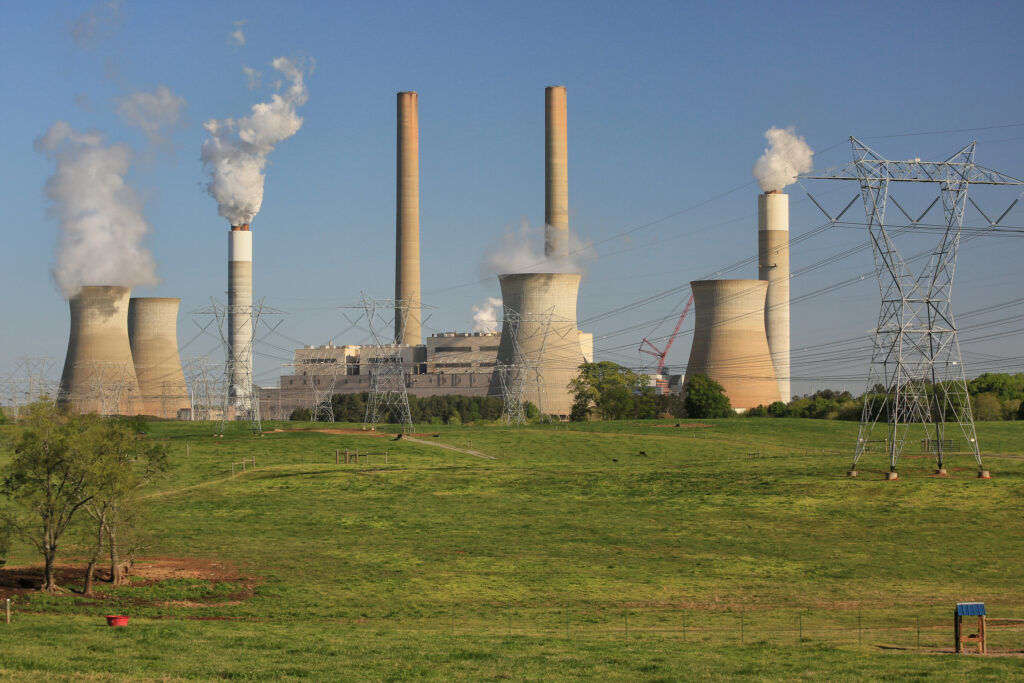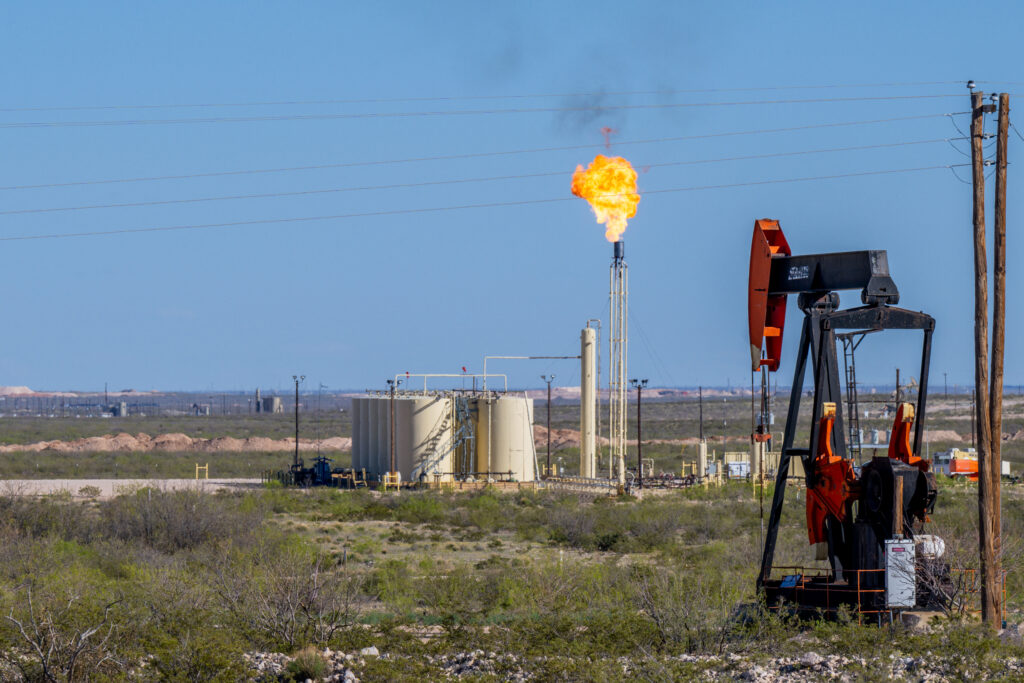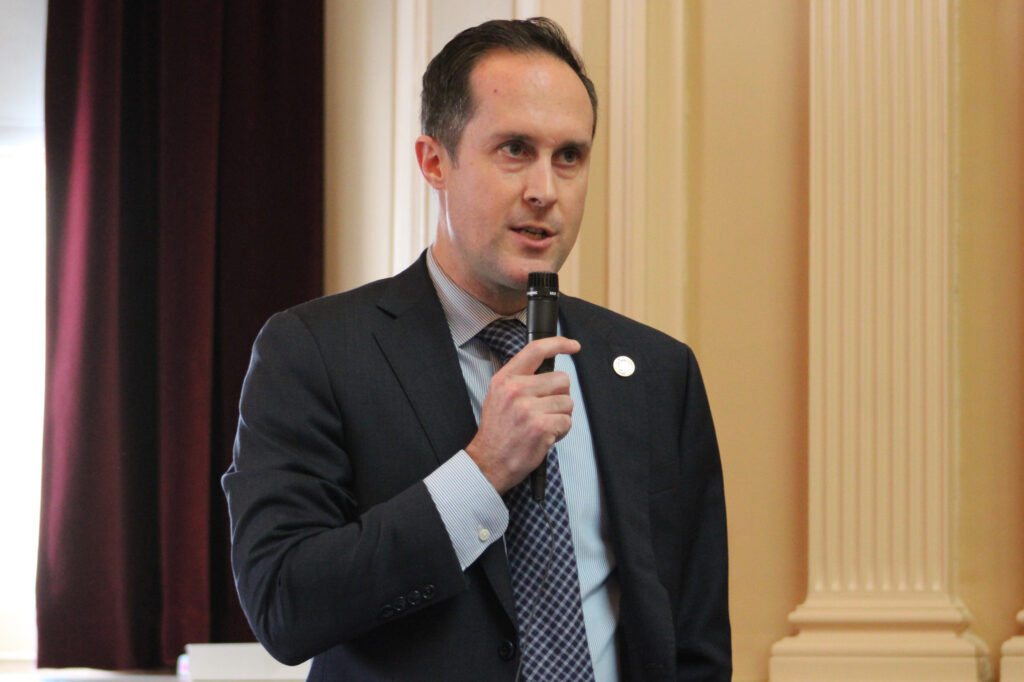The Environmental Protection Agency’s proposed rollbacks of pollution regulations would kill Americans and be a “tragedy” for health, physicians and public health experts say.
At a virtual panel hosted by the American Lung Association on Wednesday, physicians and health experts highlighted the human health implications of the EPA’s efforts to roll back regulations on particulate matter air pollution, greenhouse gases, transportation emissions and more.
The EPA, led by Lee Zeldin, called March 12—when the agency announced 31 actions targeting environmental regulations—“the most consequential and momentous day of deregulation in U.S. history.”
“The 31 historic actions undertaken by EPA … prioritize the agency’s core mission of protecting human health and the environment, while fulfilling President Trump’s promise to unleash American energy, lower cost of living for Americans, revitalize the American auto industry, restore the rule of law, and give power back to states to make their own decisions,” the agency said in response to questions from Inside Climate News, repeating earlier comments on the matter.
We’re hiring!
Please take a look at the new openings in our newsroom.
See jobs
But public health experts say that these efforts, if successful, will cut thousands of lives short.
“Simply put, these rollbacks will make people sick, [causing] more childhood asthma attacks, more toxic emissions from power plants and industry, more air that’s not safe to breathe,” said Laura Kate Bender, assistant vice president of Nationwide Healthy Air at the American Lung Association, who moderated the panel of experts.
The agency’s rollbacks target regulations, including standards on particulate matter pollution that were strengthened just last year by the Biden administration, that medical and public health experts have said would save thousands of lives.
Particulate matter, tiny particles that can penetrate deep into the lungs, increases the risk of heart attacks, strokes, heart disease, congestive heart failure and lung cancer, and can exacerbate asthma and chronic obstructive pulmonary disease. Exposure to particle pollution can also cause low birth weight, infant mortality and impaired lung function in children.
Last year, when the EPA tightened the National Ambient Air Quality Standards for that pollutant, it projected that the updated standard would prevent up to 4,500 premature deaths and yield up to $46 billion in health benefits in 2032. Rolling it back could have the opposite effect, experts said.
“Rolling back the PM NAAQs means more asthma attacks, more heart attacks, more strokes and more deaths,” said Dr. Alison Lee, a pulmonologist who chairs the American Thoracic Society’s committee on environmental health policy. “In other words, rolling back the PM NAAQs means a less-healthy America.”
Dr. Maida Galvez, a pediatrician and board member for the Children’s Environmental Health Network, said that parents are increasingly concerned about their children’s exposure to environmental hazards.
“The most important clinical intervention is preventing the exposures from happening in the first place,” Galvez said.
Galvez pointed to the EPA’s new proposal to reconsider Mercury and Air Toxics Standards (MATS) finalized in 2012—which aim to limit hazardous air pollution from coal- and oil-fired power plants—as a particularly harmful action.
Exposure to mercury, a dangerous neurotoxin, is especially hazardous to developing fetuses and can lead to lower IQ and developmental delays in children, including in motor skills like walking and running, and language learning ability. The World Health Organization has named mercury one of the top 10 chemicals of major public health concern.
“The most important clinical intervention is preventing the exposures from happening in the first place.”
— Dr. Maida Galvez, Children’s Environmental Health Network
Between 2010 and 2017, mercury emissions from U.S. power plants were reduced by 86 percent, according to the EPA. A Harvard University study from 2023 found that in the decade since MATS went into effect, atmospheric mercury deposition—or the process by which mercury moves from the atmosphere to Earth surfaces like land and water—decreased by 91 percent across the country. The EPA previously estimated that MATS prevented 11,000 premature deaths, 4,700 heart attacks and 130,000 asthma attacks every year.
The most important clinical intervention for reducing risks like mercury exposure is strong public health policy, Galvez said.
Experts on the panel emphasized that the regulations targeted by the EPA can’t be immediately undone with a series of press releases.
“EPA is legally required to go through a process if they’re going to re-examine and reconsider these rules, and health groups will engage every step of the way to make it crystal clear that keeping them in place is essential for people’s health,” Bender said.
In the meantime, if the EPA fails to enforce existing laws and regulations, advocates are also prepared to take the agency to court.
“There have been times where the EPA has not enforced its own rules, and organizations like ours have taken them to court to force that enforcement, so that is likely to happen,” said Dr. Mark Vossler, board president of Washington Physicians for Social Responsibility.
Ultimately, all efforts to reduce air pollution are critical for public health, experts emphasized.
“There’s no real safe level of these common air pollutants,” Vossler said. “Any increase in pollution has meaningful adverse effects on human mortality, and a reduction in these common pollutants has a benefit on human mortality.”
About This Story
Perhaps you noticed: This story, like all the news we publish, is free to read. That’s because Inside Climate News is a 501c3 nonprofit organization. We do not charge a subscription fee, lock our news behind a paywall, or clutter our website with ads. We make our news on climate and the environment freely available to you and anyone who wants it.
That’s not all. We also share our news for free with scores of other media organizations around the country. Many of them can’t afford to do environmental journalism of their own. We’ve built bureaus from coast to coast to report local stories, collaborate with local newsrooms and co-publish articles so that this vital work is shared as widely as possible.
Two of us launched ICN in 2007. Six years later we earned a Pulitzer Prize for National Reporting, and now we run the oldest and largest dedicated climate newsroom in the nation. We tell the story in all its complexity. We hold polluters accountable. We expose environmental injustice. We debunk misinformation. We scrutinize solutions and inspire action.
Donations from readers like you fund every aspect of what we do. If you don’t already, will you support our ongoing work, our reporting on the biggest crisis facing our planet, and help us reach even more readers in more places?
Please take a moment to make a tax-deductible donation. Every one of them makes a difference.
Thank you,

















